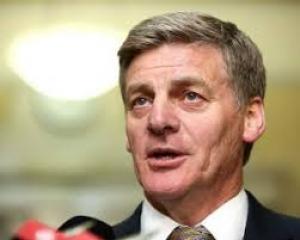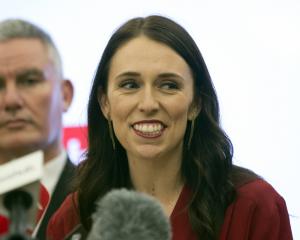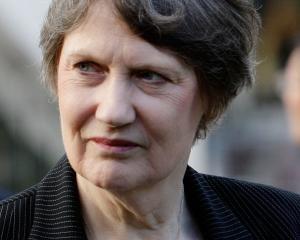It doesn't matter for that balancing act whether National keeps its 61 seats in the final count or loses one.
Young David Seymour, Act New Zealand's third Epsom MP, will back deregulations and other business-friendly policies, such as the stalled redrawing of the Resource Management Act, to put the economy on a par with the environment, and yet more labour market flexibility.
If Peter Dunne, now just a ''hangover'' MP, and Te Ururoa Flavell, ghettoed in Waiariki, oppose such measures, they cannot stop them. Winston Peters can huff and puff and all the while age a bit more. He won't count. Nor will lost Labour and the biodegraded Greens. So what will National do? John Key said he won't ''swing to the right''.
This from the head of a government that has been more right-friendly than any since 1992. But he is right that he cannot go too much further. So what will National do? First, there will be continuity. Fiscal consolidation is high on that list. It sets boundaries to policy options.
Priorities were set out in August in the pre-election economic and fiscal update. Investment in hard infrastructure continues. So does oil and gas exploration. Trade agreements will be pursued, Korea and the Trans-Pacific Partnership high on the list.
The push continues to double agricultural exports and lift exports of goods and services to 40% of GDP (though the percentage has hardly moved so far under National). A gradual rise in investment in science and research towards 0.8% of GDP has been signalled, coupled with an aim of 1% by the private sector. Pressure for welfare and public service reform will continue.
The second stream will be potholing difficult issues, existing or yet to appear.
Among those potholes are: affordable housing and ''poverty'', which appeared in the political highway over the past two years; taking the edge off some conservation concerns (there was a swag of little announcements during the campaign); dealing with the growing financial pressures in the hospital system; managing public concern over foreign, especially Chinese, land and company purchases; adjusting transport policy (for instance the cycleways announced during the campaign); and crime and violence measures.
The third main stream of activity is strategic. One strategic issue is natural resource policy, initially developing the detail of freshwater policy but needing over time to extend to general environmental matters where, to maintain investor confidence, the balance will need to be demonstrably durable.
Logically, that leads on to climate change policy: a new target and accompanying ''narrative'' must be tabled in the international negotiations next year. The second strategic area is a revived attempt to deal with regulatory complexity and get laws fit for purpose.
This is very challenging and defied Bill English and Rodney Hide in 2009. It ties in to the continuing drive to get public service agencies (and ego-ridden ministers) to work better across portfolio boundaries to achieve measurable outcomes, instead of just doing what agencies are paid to do. This is proving very difficult, though there is some movement.
The third strategic area is to shift from ''standards'' in education to upgrading teachers' professional capability and performance, to meet rapidly changing skill needs in the 2010s highly globalised economy. This, too, is very challenging.
The fourth strategic focus is to extend the ''investment'' approach from welfare to other social policy, to judge programmes by the return on funds invested in them and focus on those paying the best dividends.
This, too, is hard. But the idea is now spreading through agencies. So this is not a government running out of ideas as often happens in a third term. It also wants a fourth term.
That is the real constraint on how far it might take some programmes, especially deregulation. If it gets too far ahead of, or adrift from, public opinion, that will give the winded Labour Party some air. (More on Labour next week.)
A change of government next time could undo some of National's policies. And don't bet there won't be change. The hospital pips will squeak much more loudly now the election is over.
This term, smooth talk will not drown out the squeaking. Jobs and income growth will slow as the Christchurch rebuild peaks, then slows. Households won't feel as positive in 2017 as now. Measures of whether the country is on the right or wrong track won't be as stratospheric.
And Mr Key's personal authority will have been eroded a bit by his entanglement with the Whale Oil blog. That offends some moderate conservatives.
Other moderate conservatives dislike his offhand speechifying at their huis. Still, he is New Zealand's political macro-personality. That means he can play the game pretty much his way.
Colin James is a leading social and political commentator.












